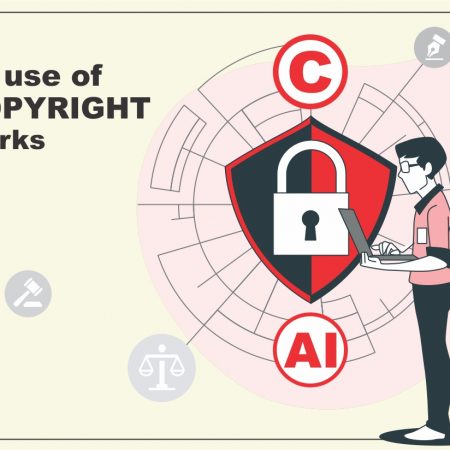LAWS APPLICABLE TO EMPLOYEE AGREEMENTS IN PRIVATE COMPANIES
INTRODUCTION
Employment agreements in India are primarily governed by The Indian Contract Act, of 1872 . It is a mutual contract between the Employee and the employer that governs the terms of employment. Like any other agreement , the vital requirements of the employment contract include an offer, consideration, acceptance, lawful object, competent parties, and free consent. At Knowledgentia Consultants, we provide best contract drafting services in India. Our experts are well versed with current laws for drafting effective contracts. The purpose of employment agreements is to clearly define the role and duties of both the company and the Employee. Breach of the Contract might lead to legal penalties. An employment agreement should contain salary info but also clauses about the period of employment, specifically while dealing with union agreements, confidentiality, and future competition like noncompeting agreements and possession agreements. Possession agreements might apply to the employer possessing any work-related resources produced by the Employee, or maybe communication devices and work equipment.
ESSENTIALS OF AN EMPLOYMENT AGREEMENT
1. OFFER AND ACCEPTANCE
The employer’s offer for employment must be made with free consent and accepted by the Employee without any unwarranted influence, coercion, or force.
2. CONSIDERATION
Consideration is the payment of salary, remuneration, or compensation to the worker in exchange for the worker’s services to the employer.
3. COMPETENT PARTIES
Any parties agreeing to an agreement must be legally and mentally capable of entering into such a contract.
4. LEGAL OBJECT
An employment contract holds admissibility in a court of law as evidence in a trial. This implies that for an employment contract to be legally valid, it must be legitimately drafted. Any agreements that are illegal or against the law are considered null and void. Knowledgentia Consultants which is the best law firm in India, supports its clients in drafting legally enforceable contracts.
5. JOB DESCRIPTION
The Agreement should specify the primary responsibilities of the Employee and include the job description outlined in the offer letter given to them. Additionally, it should mention the department where the Employee will work and provide details about their trainer or reporting head.
6. PROBATIONARY PERIOD
A probationary period might be agreed upon at the start of the employment. The time limit for a probationary period will not exceed six months.
7. LEAVE POLICY
Leave policy must contain the details concerning the public holidays plus paid leaves an Employee is eligible for within a year.
8. Notice Period
Notice period has to be delivered for both Employer and Employee. Neither Party must be permitted to terminate the Contract abruptly, in case of instant termination, except upon breach of Contract and rational terms, the non-terminating Party must be entitled to compensation.
IMPORTANT RIGHTS OF A PRIVATE EMPLOYEE PROTECTED BY THE LAW
Although there are terms of employment defining the specific terms, the employees in the organised private sector are governed by various laws such as Payments of Bonus Act, Equal Remuneration Act, Payment of Gratuity Act, Employees Provident Fund and Miscellaneous Provisions Act, Employees’ State Insurance Act, Maternity Benefit Act, etc.
The right to safe working place with basic amenities, right to appropriate working hours, right to any assured incentive etc. are protected under the law. Here’s a list of essential rights of an employee under the various laws and regulations:
MATERNITY BENEFIT
The Maternity Benefit Act, 1961, provides for prenatal and postnatal benefits for a female employee in an establishment. Post-2017 amendments, the duration of paid leave for a pregnant female employee has been increased to 26 weeks, including eight weeks of postnatal paid leaves. Pregnant female employees cannot be discharged or dismissed on account of such absence. Such employees are not to be employed by the employer within six weeks of delivery or miscarriage. If dismissed, they can still claim maternity benefits. In India, men do not get any paid paternity leave. The Central Government provides for child care leave and paid paternal leave. But in case of private sector, it is a discretionary right of the employer.
PROVIDENT FUND
Employee Provident Fund Organisation (EPFO) is the national organisation which manages this retirement benefits scheme for all salaried employees. Any organisation with more than 20 employees is legally required to register with EPFO.
GRATUITY
The Payment of Gratuity Act, 1972 provides a statutory right to an employee in service for more than five years to gratuity. It is one of the retirement benefits given to the employee. It is a lump sum payment made in a gesture of gratitude towards the employee for their service. The amount of gratuity increases with increment and number of years of service. However, the employee if dismissed for proven lawless or disorderly conduct, forfeits this right upon dismissal.
TIMELY AND FAIR SALARY
The whole point of providing service for an employee is fair and appropriate remuneration. Article 39(d) of the Constitution provides for equal pay for equal work. The laws under The Equal Remuneration Act, The Payment of Wages Act, mandates timely and fair remuneration of an employee. If an employee is not receiving his/her remuneration as per the employment agreement, can approach the Labour Commissioner or file a civil suit for arrears in salary. An employee cannot be given wages less than the legal minimum wages, as per law.
APPROPRIATE WORKING HOURS AND OVERTIME
All employees have a right to work in a safe workplace with basic amenities and hygiene. The Factories Act provides and the Shop and Establishment Acts (statewise) protects the rights of the workers and non-workmen. Under the most recent laws, an adult worker shall work over 9 hours per day or 48 hours per week and overtime shall be double the regular wages. A female worker can work from 6 am to 7 pm. This can be relaxed to 9.30 pm upon explicit permission, and payment for overtime and safe transportation facility. Apart from this weekly holiday, half an hour break and no more than 12 hours of work on any given day is mandated. The working hours for child workers are limited to 4.5 hours a day.
RIGHT TO LEAVES
An employee has the right to paid public holidays and leaves such as casual leave, sick leave, privilege leave and other leaves. For every 240 days of work, an employee is entitled to 12 days of annual leave. An adult worker may avail one earned leave every 20 days whereas its 15 days for a young worker. During notice period an employee can take leaves for emergencies, provided the employment agreement does not bar it.
PREVENTION OF SEXUAL HARASSMENT AT WORKPLACE
Sexual Harassment of Women at Workplace (Prevention, Prohibition and Redressal) Act, 2013 protects women at the workplace from sexual harassment. The Indian Penal Code also provides a penalty of upto three years imprisonment with or without fine, for sexual harassment. For organisations with ten or more employees, there has to be an internal complaint committee constituted for the aid of the victims of sexual harassment. The law mandates that a grievance redressal policy and mechanisms be in place in such organisations which outlines what constitutes sexual harassment, penalties, redressal mechanism, etc. The committee should also include a senior woman as a member, two other employees as members and a non-governmental member.
Broadly these guidelines are applicable within private workspace but laws might also differ from state to state and from organization to organization. Knowledgentia experts have vast experience in handling matters pertaining to all important corporate legislations like The Companies Act, 2013; The Competition Act, 2002; The Foreign Trade (Development and Regulation) Act, 1992 and Securities and Exchange Board of India Act, 1992.We advise clients not just locally but all across the globe so they may carry out their activities in conformity with Corporate Laws in India, globally. Knowledgentia, exemplary Corporate Law Firm in India, handles the entire ambit of services in the arena of Corporate Laws. We are recognized for our expertise, credibility and ensuring logical solutions for our corporate clients.








